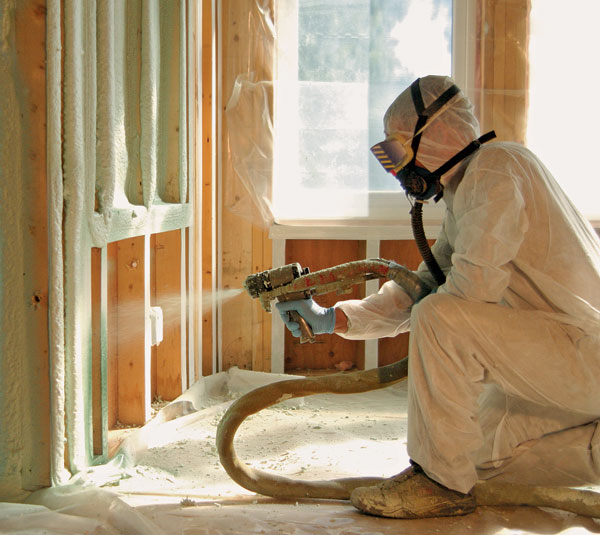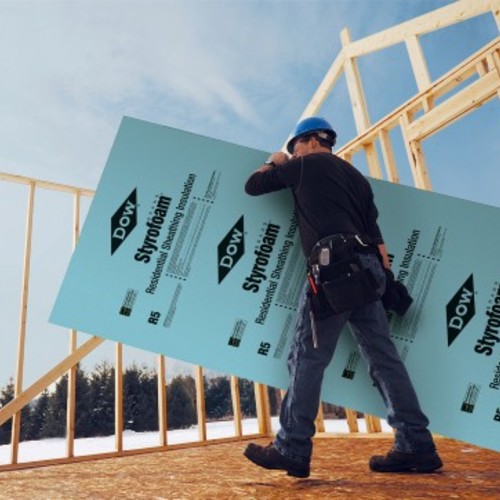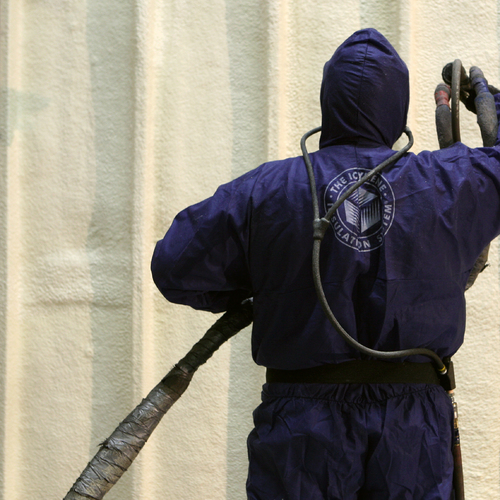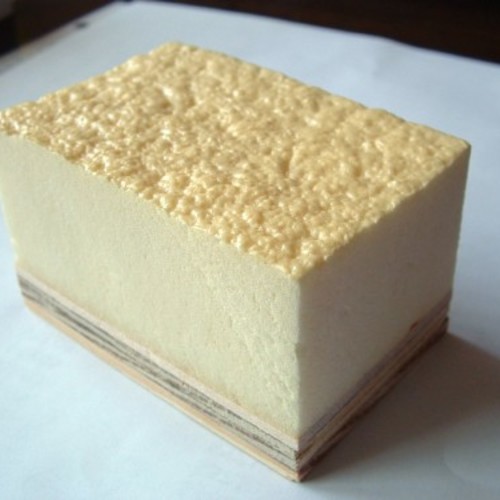
On December 12, GBA posted an item about a Passive House Institute U.S. proposal to disallow use of spray polyurethane foam (SPF) insulation using hydrofluorocarbon (HFC) blowing agents with a high global warming potential. PHIUS also was considering extending the stricture to other petroleum-based insulation materials whose embodied energy is linked to greenhouse gas emissions.
The proposals generated a number of responses from the building community that prompted PHIUS to present the issue to the organization’s recently formed technical committee, whose members include Passivhaus consultants and other building-science experts.
“It’s clear, though, that lots of folks in the Northwest community and elsewhere feel strongly about this issue,” PHIUS Executive Director Katrin Klingenberg wrote in a December 14 note to members of the “Passive House Northwest” Google Group. “Therefore, PHIUS will refer the spray foam/blowing agent matter for consideration to our Technical Committee, which comprises practicing Certified Passive House Consultants and building science experts from around the United States, including Graham Wright, whom many of you know. (The original determination was made before the Tech Committee was launched.) Whatever the Committee decides is fine. We are confident that we will move away from the blowing agent in question in the near future regardless.”
Weighing GWP vs. benefits
The technical committee is still formulating guidelines on insulation material that use HFC blowing agents. In the meantime, Klingenberg, in an email to GBA, said that PHIUS “will continue to assess the CO2 impact on a case-by-case basis until we have a final, more detailed determination and report from the tech committee.”
She also pointed out that a GBA article posted two years ago by Alex Wilson, executive editor of BuildingGreen, LLC, offers solid background, relevant to PHIUS concerns, on the global warming potential of HFCs in blowing agents for both spray foam and certain types of rigid foam (such as extruded polystyrene), and the relative energy-saving benefits of those types of insulation.
This page on the Environmental Protection Agency website lists the GWP of a variety of HFCs, some of which are used as blowing agents, some as fire suppressants and propellants, and some in refrigerant blends.
Weekly Newsletter
Get building science and energy efficiency advice, plus special offers, in your inbox.















2 Comments
Spray Foam Insulation
This is a good start, but Spray Foam Insulation also needs more research on its long term off gassing and the dangers it may produce to the household occupants,especially children. Do you live in a Spray Foam home and have respiratory issues, sore throat or skin irritation, sore muscles, flu like symptoms, or headaches? Does it get worse in warm temperatures? Does your attic smell like fish or sweet pungent chemicals?
Our new custom home did and test results from the lab behind GreenGuard Certification indicate it is dangerous to occupy. The manufacture denies the issue, meanwhile they are busy all over the US, trying to remove homes of its SPF. We are in touch with over 30 other families unable to live in their homes because of the Spray Foam Insulation. Did we just get unlucky with the application or is SPF not inert like the industry claims it is?
you got unlucky
it is like fire
wonderful to cook with, beautiful to look at in a candle, warm to feel in a fireplace.... lots of benefits; but don't use it correctly, and it is disaster
everything has risk, and nearly everything in your home is or contains chemical(s) including the fire retardant soaked keyboard you are typing on.
Log in or create an account to post a comment.
Sign up Log in